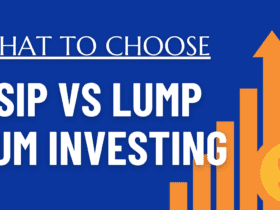Hey there! Have you ever wondered why some people suggest diving directly into the stock market? Honestly, I’ve never quite understood it myself. Sure, there are benefits to picking your own stocks, but there are plenty of perks to investing in mutual funds too.
If you’re not a finance whiz, mutual funds are a fantastic option. They help you save regularly, skip the stress of researching individual stocks, and allow you to focus on what you do best. Let’s explore why mutual funds are a hassle-free investment with the potential for great returns.
Why Mutual Funds Are Awesome
- Professional Management:
- Imagine having a team of experts working around the clock to make sure your money grows. That’s what mutual funds offer. Professional fund managers make smart decisions on your behalf, so you don’t have to stress about it.
- Diversification:
- Instead of putting all your eggs in one basket, mutual funds spread your investment across various stocks or bonds. This reduces your risk and increases your chances of earning better returns.
- Convenience:
- Investing in mutual funds is super easy. No need to spend hours researching stocks. Just set up a systematic investment plan (SIP) and invest a fixed amount regularly. Sit back and watch your money grow.
Expense Ratio: Not a Big Deal
Let’s talk about the expense ratio. It might sound complicated, but it’s really not.
What is an Expense Ratio?
- It’s the annual fee that mutual funds charge to manage your money. This fee covers everything from management to administrative costs.
How It’s Calculated:
- Expense Ratio = (Total Fund Expenses / Total Fund Assets) x 100
Impact on Returns:
- While the expense ratio does eat into your returns a bit, it’s usually just 1-2% of your investment. Think of it as paying a small fee to have experts manage your money and potentially achieve higher returns than traditional investments like fixed deposits (FDs) or recurring deposits (RDs).
- Now, a question will come to mind that it’s charged on total assets value you hold and deducted daily, charging annually. So, it’s high only compared to stocks, but as making losses in stocks by selecting the wrong ones, it’s better to invest through professionals and nothing wrong in giving small amounts to manage your assets.
Understanding Exit Load
Now, about the exit load—don’t let it scare you away. Here’s the scoop:
What is Exit Load?
- It’s a fee charged if you withdraw your money too soon, typically within 3 to 6 months of investing. This is designed to encourage long-term investing.
No Entry Load:
- Good news! SEBI abolished the entry load in 2009, so there’s no fee when you invest in a mutual fund. You only need to think about the exit load if you plan to pull out your money early.
Headache-Free Investment
Here’s why mutual funds are a stress-free way to invest and get good returns:
- Regular Savings: SIPs make it easy to save consistently, helping you build a solid financial future without much effort.
- Lower Risk: With a diversified portfolio, mutual funds spread out the risk, making it safer than betting on single stocks.
- Less Monitoring: You don’t have to keep an eye on the market every day. Let the professionals handle it while you focus on your job or business.

FAQs
1. Are mutual funds good for beginners?
- Absolutely! They’re perfect for anyone new to investing, thanks to professional management and built-in diversification.
2. How do I start investing in mutual funds?
- It’s simple! Choose a reputable fund house, set up a SIP, and pick funds that match your financial goals and risk tolerance. You can read my post – Save tax in ELSS Mutual funds: List of top 10 funds (2024) and Calculate Correct EMI and total Interest on Home or Car Loan
3. Should I be concerned about the expense ratio?
- Not really. It’s a small fee for expert management and the potential for higher returns. Definitely worth it!
Conclusion
Mutual funds are a smart, hassle-free way to invest, especially if you don’t have the time or expertise to pick individual stocks. The expense ratio and exit load are minor costs for the convenience, diversification, and professional management they offer. So, don’t stress over these details—mutual funds can be a valuable part of your investment strategy.











1 Comment
View Comments